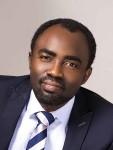Some of us would be familiar with the character called Tinkerbell from the children’s stories connected to Peter Pan, the lost boy.
Well, Tink has a whole lot of stories of her own now and in all of them, she has a passion for collecting lost things. Those things often come in handy for her and usually are instrumental as she saves the day and comes out feeling special and heroic.
This desire to feel special, heroic and superior is not limited to fairy tale creatures and children’s stories. We Christians also have this pull for the limelight, no matter how humble we are inside.
This pull or drive has led some of us to think like Tinkerbell, and pursue lost things because they might make us feel like special heroes. One of such fascinations is the issue with the so called hidden, lost, and appendiceal books of the Bible.
In our search for knowledge, we often, not always, but often enough look for the exotic because we somehow conclude that what is commonly known and available to the man on the street cannot possibly be all there is to know, and because we want to appear better than the man of the street we press on in our search.
As a matter of fact, we tend to celebrate ministers who mention something from somewhere we have never been or heard or read over those who use the every day things we all know to espouse the wisdom of our God. This tendency could reduce our discussions of the things of God to intellectualism and not revelation.
I believe we are tasked with bringing the world to the revelation of Jesus and by Him to the father. Our task is not to acquire and share knowledge but it is to share the knowledge of Christ.
Intellectualism, for it to be true, must be complete, must of necessity acknowledge every material available on the specific subject. It must allow every shred of material into the collective and begin to try to sieve out the verifiable from the assumed and unverifiable. Interestingly, though that is where it seeks to end, it never ends there because more “scrolls” keep being discovered and more books keep being written. Each new material must be added and the whole process restarted and we find ourselves in an endless circle of ever learning but never coming to the knowledge of the truth.
In the pursuit of intellectualism then, we must necessarily set aside boundaries to pursuits of further knowledge by the one who, being all knowing, also knows we don’t need to know all there is to know and, as such, has set a limit to what we can and should know.
While we have a tendency to challenge the limitations, we must bear in mind the concept of trust that the all-knowing loves us and seeks our highest good. With such a knowledge, we become free of the burden of freedom and the attendant need to pursue self-realization and instead believe. When we take that stand, we will see the limitations as what they truly are, hedges of protection. He who breaks the hedge, the serpent will bite.
Speaking of hedges and serpents, it was this same hedge that was breached in the garden of Eden and by that breach, death entered into the world. Mankind decided the knowledge of good and of God alone was not enough, we needed to know evil as well and now on tasting that fruit, we also tasted death.
Seeking more knowledge is not what makes us superior, rather it is understanding. “I have more understanding than my teachers because your law is my meditation”. It doesn’t say I have more knowledge than my teachers.
By what means did Solomon excel above all men? Was it by knowledge of things previously unknown or by coming to better understanding of things previously known and even considered common? The Bible says, And God gave Solomon wisdom and exceeding largeness of heart. And Solomon wrote songs and lores (notes) on all he could see and understand viz plant life, animal life, wind, water and fire. And in one of his writings, Solomon even said ” Go to the ants you sluggard and learn wisdom”.
Seeking more knowledge or materials with special or further privileged knowledge outside what has been established as the word of God and wondering into areas accepted by some but rejected by the elders of the church is worrisome to me because I know that the devil is out there also writing books and enticing the Eves in our generation to taste of some liberating fruit which end up casting shadows on what we once considered light.
I personally read two of the apocryphal books I found in one of my Dad’s Bibles many years ago. Tobit I and Tobit II. I was a much younger Christian … or was I even saved then?, I can’t remember. Anyway, I came away with no inspiration but with a story where an Angel gave a false name, lied that he was a distant relative of the character of the story, and had to catch a burn an internal organ of some special fish they had to catch in order to chase away a demon from woman so Tobit could safely marry her.
The Angels in the rest of the scriptures gave messages and left. But this angel hung around till the story came to an end. Reading it, it felt more like a christian version of Aladdin and the genie.
I didn’t bother to read the others available in that volume of 6 or 8 books. And here I am finding out that there are even more.
Whatever the number, Jesus did not refer to them in his teachings, Peter did not, Paul did not and if these three persons could walk with and please God without these materials, why do I feel the need to do otherwise?
Of course, people write and publish books even today, I also hope to publish a few, but it does not mean every book written in or based on Bible times is the inspired word of God. There were records in Egypt that could have been translated into books and inserted somewhere but they were not. That’s not a lost book, it was an ignored book. Many times in the Bible book of Kings and Chronicles, reference is made to some other books of kings in which their detailed acts are recorded yet they were not included in the Bible. Not even all the words and acts of Jesus were included in the Bible, if they were, the whole world would not be able to contain the books that would have been written. Discovering those books today would make them lost and found and hidden books. Yes, they were lost to civilization and hidden from us but they were not lost to the Holy Spirit who compiled the bible for our edification. The Bible was not written as an archive for our information but for our instruction, and so only what He deemed necessary for our edification was included.
The power of the written word is not in its exhaustiveness but its divine origin. Thus, whole communities in the dark ages remained edified by a single treasured leaf from the book of John or some other book for months on end until they could exchange it with that of another community. The early Christians did not have what we now refer to as the New Testament Bible; all they had was the law and the prophets, yet we are still far behind them. So pursuing lost books does not amount to acquiring some lost superior edification, not for the genuine spirit-filled believer for whom there is even an over-arching exhortation, “knowledge puffs up but agape edifies.”
I know we are in an age where we challenge any and everything but if God who selected, by grace, certain people at a certain time to be the elders of the church and ordained and led them to decide what should be in the most critical volumes of all time for all humanity, has allowed certain books to be overlooked while others were canonized, then I am staying with the selection of God. Although, I know and recognise only a few of the parameters they used in making their selection, but they did not need my approval and excellent insight to make the final decision otherwise, the Almighty God would have ensured I was born back then and appointed to such a body to see His will done.
There is no one I have ever met who read these overlooked or “lost” books, and believed them without coming away with atypical beliefs or disturbing questions with answers that are never satisfactory or edifying. Furthermore, I am yet to meet anyone who through reading them came to the saving knowledge of Christ.
I would rather leave these “lost”/appocryphal books alone for Tinkerbell and those like her. I don’t even mention them in discussions no matter how advanced or mature I feel my listener is. This is my counsel and my stand as much as God’s grace has enabled me.

Daniel Oyanna is a conference speaker on relationships, health, faith and other subjects and a Pastor and teacher blessed by God with a grace to make things easy to understand. He is the author of the book To Date or Not to Date, Instructions in Submission, Crushing the Crushers, several mini-books most of which are free. He started UnLimited to help people reach their God-given goals by walking with them to their finish line. He is reachable at pd_lionunlimited@yahoo.com
